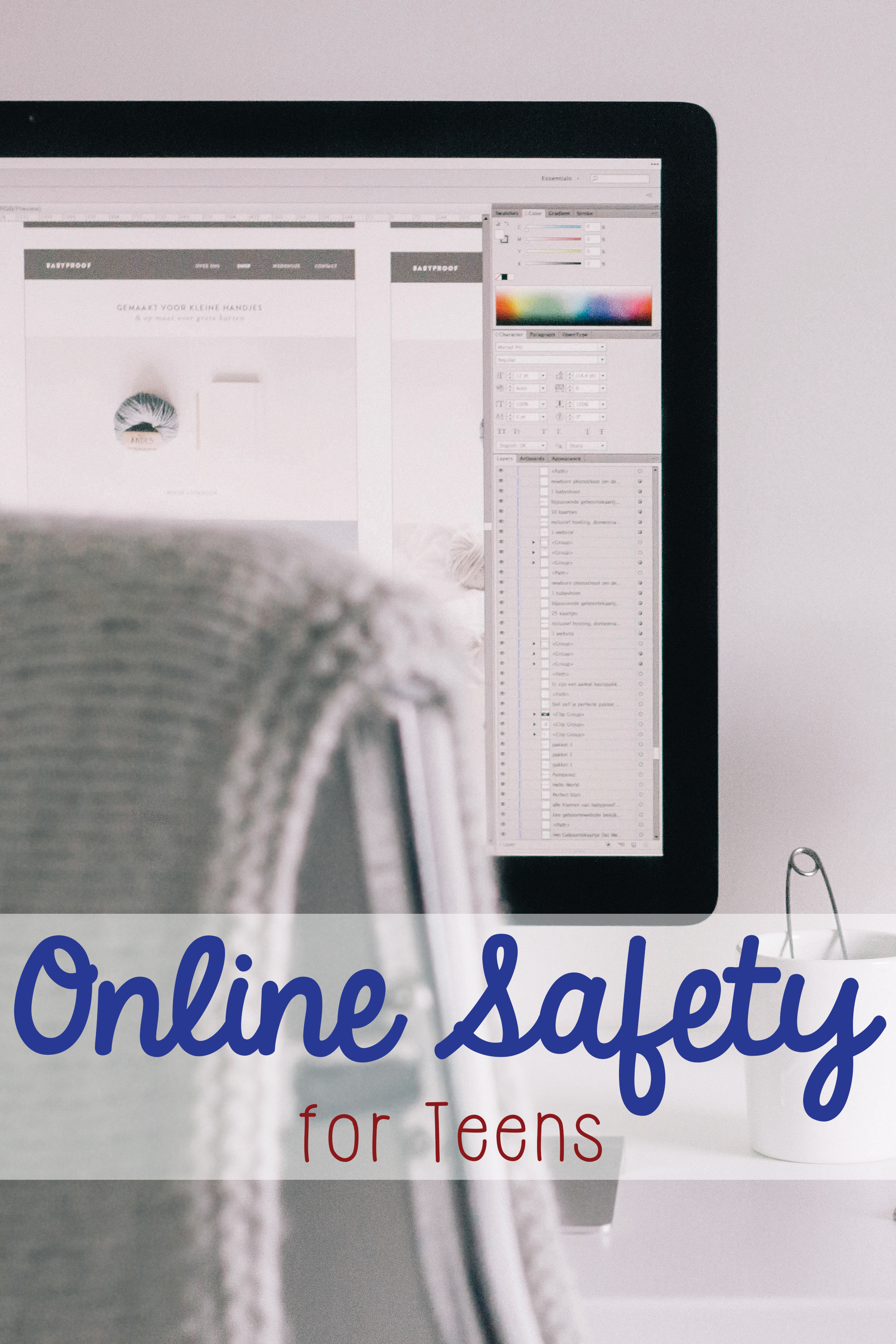
The Internet can be an amazing place at times– endless pages of content and information, music and videos, books and movies, stories coming together and people crossing paths. But it can also have a very dark side to it… it’s a dark side that I’ve experienced firsthand, but also witnessed far too many teens going down the same path. Even when I was a younger teen, and even though the internet was a relatively new thing at the time (as in, we were still on dial-up), I managed to have some close calls that could have ended really badly. Luckily, I had parents who kept a watchful eye over my online behavior and were quick to stop these issues in their tracks. You can help your teens experience better online safety– here are a few ways to keep your kids safe online.
Make social media accounts “joint accounts.” One really great way to keep track of your child’s account online, is to require that you always have the current password. This means you are able to log in for “spot checks” anytime necessary. Obviously, you’ll want to protect your child’s account in terms of being respectful– don’t post things without them knowing using their account, or reply to messages pretending to be them– but being able to check those accounts regularly is a great way to stay on top of who they’re talking to online.
Require all social media accounts to be followed by a family member. Is your child signing up for Snapchat? Mom, it’s time for YOU to get a Snapchat account, too, and follow your child. When there is potential for mom to see behavior online, it really helps stop that urge to do something you shouldn’t.
Check devices at random intervals. Not only can your child communicate via text and messaging apps on their phone, but many messaging apps are also available for devices like an iPod or Kindle. You’ll want to be sure you’re staying on top of the latest ways kids are chatting (and some of the latest apps they’re using to hide other apps). Some of the big messaging offenders are Kik, Whatsapp, Snapchat, Facebook Messenger, and Google Hangouts. While many of these apps aren’t inherently dangerous and can be used appropriately, the nature of them can be used for harm– Kik, for example, allows people to chat without exchanging phone numbers, and there are online forums available for trading Kik usernames to talk to strangers, some of whom pose as being much younger than they are… definitely check apps like these to see who your children are talking to, and be sure the conversations and their contacts list contain people they know, and not strangers they’ve been in contact with online.
Limit Internet use to common areas of the home, or cut off access at a certain time. When you keep computers to common areas of the home, and make it clear that someone could enter the room at any time, you’re helping to limit use of the wrong kinds of stuff online… with devices that connect to the web being so prevalent, it’s unlikely that you’re going to be able to cut off all device access in rooms, but if you keep computers common, it’s a good start. Alternately, shut your Wireless Internet off at a certain time of night– simply disconnect the power, and turn it back on in the morning.
Check mobile browsing history online. Many browsers, like Google Chrome, give you the option to check the mobile browsing history of a signed-in device on the web version signed into the same user. While incognito browsers and deleted history are still a possibility that would lead to an incomplete list, this is still a pretty good way of finding out what your kids might be up to online.
Be involved and ask questions. No amount of checking devices and limiting access can substitute for being involved, asking lots of questions, and having an open door of communication with your child. However, as much as you think the bond between you and your teen may be infallible, there may still be things they’re not telling you, which is why spot checks are so important. My family and I had incredibly close communication and a great relationship as a teen, but curiosity did get the best of me at times, leading me down paths of Internet chat rooms that could have really gotten me hurt or, well, even worse. No matter how much you think it won’t happen to your kids because of your relationship, online safety is still something to stay on top of, because a close relationship is helpful, but not a cure-all for staying alert.
Most of all, set clear boundaries, follow up, and stick to your word– if you catch them doing something they shouldn’t, be firm and stand your ground. Keep vigilant, and you should be taking a major step in keeping your kids safe online.




